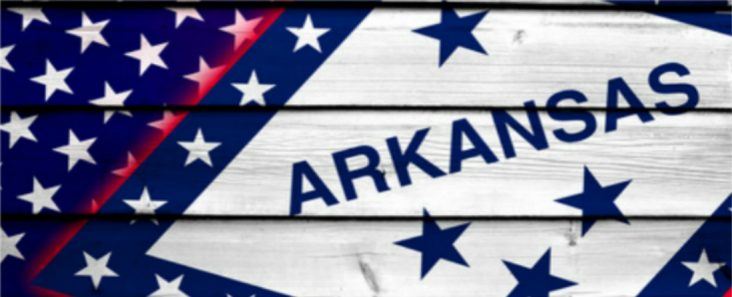Hutchinson’s office to implement efficiencies cited in Arkansas Policy Foundation report
by November 28, 2016 7:56 pm 685 views

Gov. Asa Hutchinson’s administration will begin implementing some of the strategies recommended by a report by the Arkansas Policy Foundation that found at least $50 million in potential efficiencies, Hutchinson said Monday (Nov. 28).
The report, known as the Arkansas Efficiency Project, will be used to encourage state government efficiencies along with a review of the Department of Finance Administration by PricewaterhouseCoopers. Hutchinson told reporters that the reports emphasized that changes must be driven by the governor. He said the state’s office of transformation would implement the initiatives and that an announcement would be made within a week about “three or four priorities.”
“This report that we asked for, that they invested in, I believe it is very helpful to us, and it’s not something I want to see sit on a shelf and collect dust. We hope to implement a number of parts of this,” he said of the Arkansas Efficiency Project.
Hutchinson said he would discuss one efficiency proposal, consolidating data centers, later Monday in a meeting of his cabinet.
The Arkansas Efficiency Project kicked off Dec. 17, 2015, with an announcement by Hutchinson that all state directors would assist the Arkansas Policy Foundation in recommending ways to streamline state government. Questionnaires were sent to 21 of the largest agencies – a fraction of the state’s 500 separate entities – and department officials were interviewed. According to the report, “A high level of cooperation was encountered.” The Department of Human Services was not included because Lt. Governor Tim Griffin had completed a review of that agency earlier this year.
Greg Kaza, Arkansas Policy Foundation executive director, said $15 million of the $50 million could be found if the the Department of Finance and Administration contracted with a private organization to collect money owed the state. He said DFA has $1.45 billion in receivables, with a little more than $310 million of that collectable. Using a private collection agency that collects 5% would produce $15 million.
Kaza said most of the remaining $35 million would come from addressing issues in the Arkansas Department of Education. The report found inefficiencies with several of its processes, including the way funding is distributed to poorer districts based on the National School Lunch Act, as well as the way facilities partnership funding is distributed for school buildings. He said much of that money is going to high-wealth, growth districts.
“If you were to return to the original purpose of the program, which was to have the schools be warm, safe and dry for districts that were struggling, you would save quite a bit of money,” he said.
He said those education-related solutions would require significant political will to implement.
The report makes 60 recommendations, with 20 meant to advance a culture of efficiency in state government. Among those were including the word “efficiency” in each agency’s mission statement – only four of the 21 presently do. A budgetary link should be established between the consumer price index and the agencies’ operational expenditures. Nine had spending greater than the consumer price index. The report found that many state programs exist in separate “silos” and should be incentivized to work together. Management strategies should include privatization through a variety of efforts, including contracting out with nonprofit or private sector companies and providing vouchers allowing consumers to choose services from competing providers.
The report found few state employees participate in a suggestion system for finding efficiencies that provides rewards up to $5,000. Anecdotal evidence shows many do not understand the program.
“We asked every department, how many of your employees have participated and received the bonus for making a suggestion that saved you money, and there weren’t any,” Kaza said.
The report also recommended consolidating government services, such as in the state’s educational cooperatives, which serve schools in a particular area. Performance pay is used in some agencies and should be applied in others, while the state should perform a cost-benefit analysis to determine if state employees driving state-owned or -leased vehicles should instead be reimbursed for driving personal vehicles.
The report also found 184 efficiency initiatives already underway in state government that are saving between $7.3 million and $13.5 million. The Department of Arkansas Heritage had the most initiatives, 53, that were saving $1.7 million, including relinquishing eight positions in fiscal year 2017. The Arkansas Department of Community Correction had 19 initiatives, from large (privatizing re-entry beds saving $2.5 million to date), to small (eliminating land line telephones for all of its staff members who were assigned a cell phone, saving about $157,000 a year).
On the low end, the Arkansas Military Department identified one efficiency initiative, while the Department of Finance and Administration and the Department of Correction each identified two.
